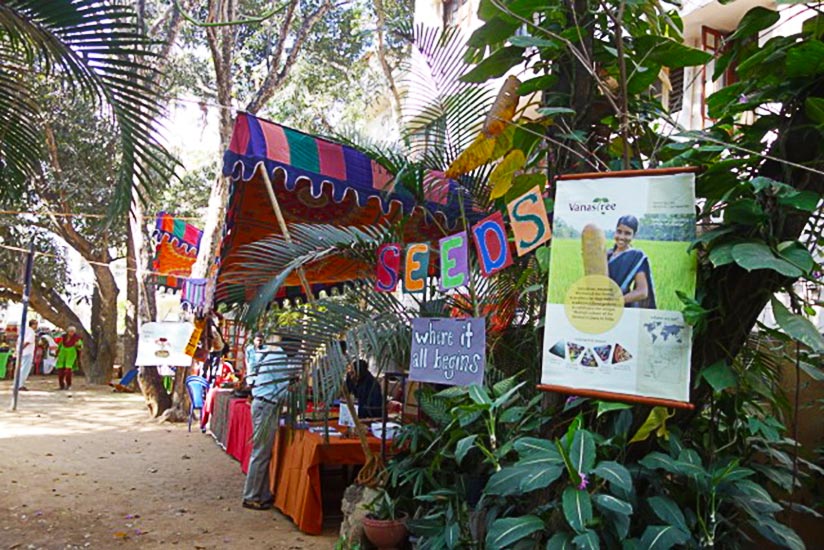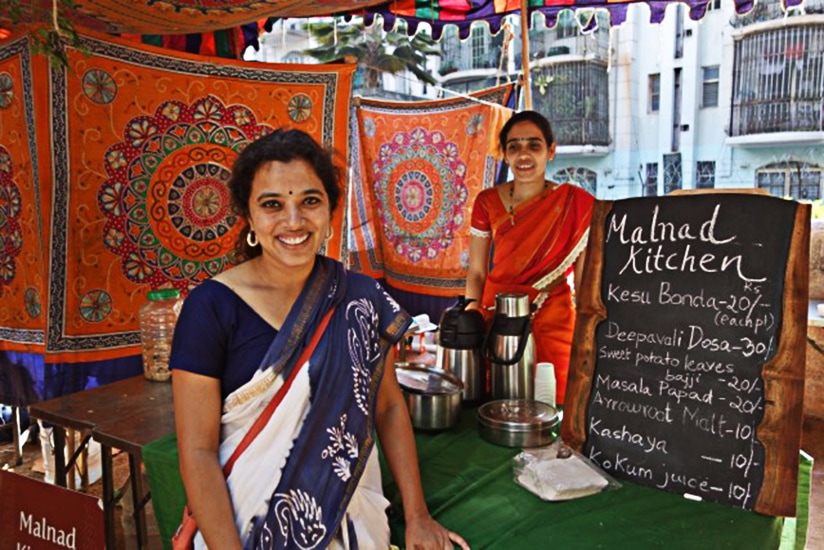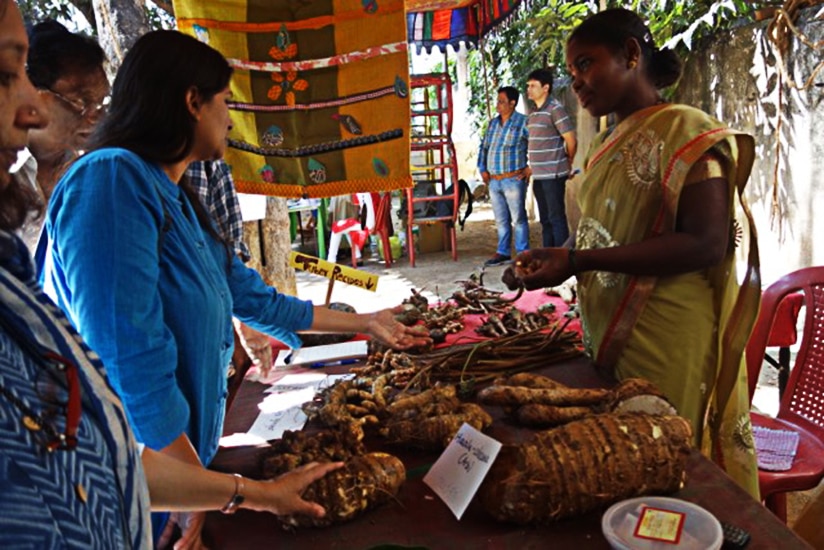Malnad Mela — A celebration of Seeds
In an event hall in the small village of Sirsi, on the edge of the Western Ghats in the Indian state of Karnataka, more than a hundred women gather to participate in the Malnad Mela, a decade-old festival organized by Vanastree, a seed saving collective of women farmers. These participants, as well as the 800 or more community members who visit throughout the day, have traveled long distances to be there despite a week of heavy monsoon rains and winds, uprooted trees, and power outages.
Arriving at the festival, there’s a noticeable buzz in the air. Members are selling and exchange organic, local seeds along with other products ranging from “aromatic herbal hair oil and recycled-fabric patchwork bags to local snacks and spices.” It is also an environment of participation and conversation, where critical issues are raised and discussed.
Sunita Rao— seed saver, farmer and founder of Vanastree — believes that the mela is a critical opportunity to bring women home gardeners and farmers together to exchange skills, share and sell produce, and discuss solutions and adaptations to the growing threat climate change presents to the region.
The Malnad region of the Western Ghats is an area rich in biodiversity that has sustained their communities for centuries. However, the changing climate has rendered the monsoons — one of the area’s most essential ecological events — both unreliable and unpredictable. Rainfall patterns have drastically changed. Deforestation has increased. Soil degradation has worsened. And women farmers are bearing much of the resulting burden.
The Malnad Mela is an opportunity for these women to share traditional ecological knowledge about saving flood-resistant indigenous seeds, promote tuber cultivation as a solution to climate-induced food insecurity, engage a larger market to sell produce, and take part in leadership skills-building with other local women leaders. Each of these goals is a strategic action Sunita Rao, Vanastree, and the women of the Malnad take to face the persistent and dangerous effects of climate change.
The Festival is also an important way for the Malnad community to appreciate their biocultural wealth, as well as the tremendous role of women as stewards of biodiversity conservation.



